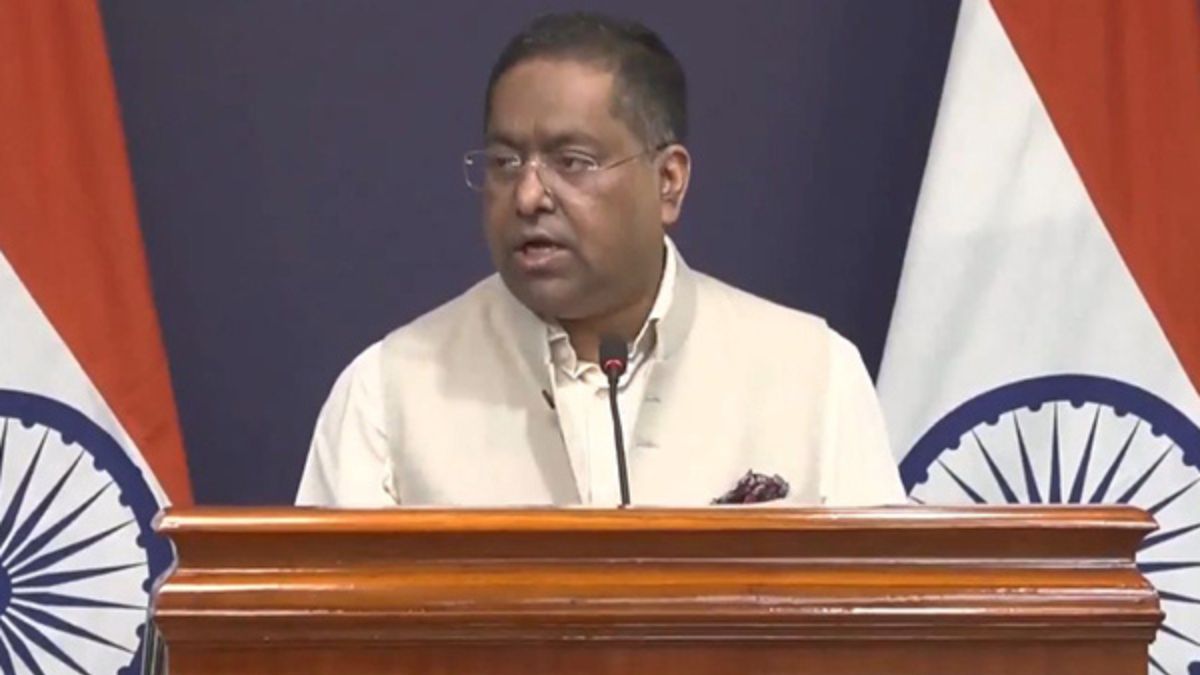Why India chose not to sign joint SCO declaration? MEA blames 'one particular country'
 MEA Spokesperson Randhir Jaiswal | ANI
MEA Spokesperson Randhir Jaiswal | ANI
Hours after India refused to sign a joint statement at the Shanghai Cooperation Organisation, the Union Ministry of External Affairs explained that its concerns on terrorism were not included in the document.
Explaining why consensus could not be reached for adoption of the document, the ministry said the "one particular country" did not find it acceptable to address India's concerns on terrorism.
The discussion on the joint declaration occured during the two-day SCO meeting in China and it was attended by Defence Minister Rajnath Singh who urged the member nations to "come together to fight terrorism in all its forms and manifestations". He also asserted that not just perpetrators and organisers of terrorims, but also those who finance and sponsor such "reprehensible acts", including cross-border terrorism should be held responsible and brought to justice.
Taking a jab at Pakistan, the defence minister said, "Some countries use cross-border terrorism as an instrument of policy and provide shelter to terrorists. There should be no place for such double standards. The SCO should not hesitate to criticise such nations."
MEA explains why India refused to ink SCO joint statement
MEA spokesperson Randhir Jaiswal said, "Certain member countries could not reach consensus on certain issue, and hence, the document could not be finalised. India wanted concerns and terrorism reflected in the document, which was not acceptable to one particular country, and therefore the statement could not be adopted."
He said the declaration did not mention the deadly Pahalgam terror attack on April 22, killing 26 innocent civilians. It also failed to reflect India's position on cross-border terrorism. However, it included references to terror attacks in Pakistan.
India